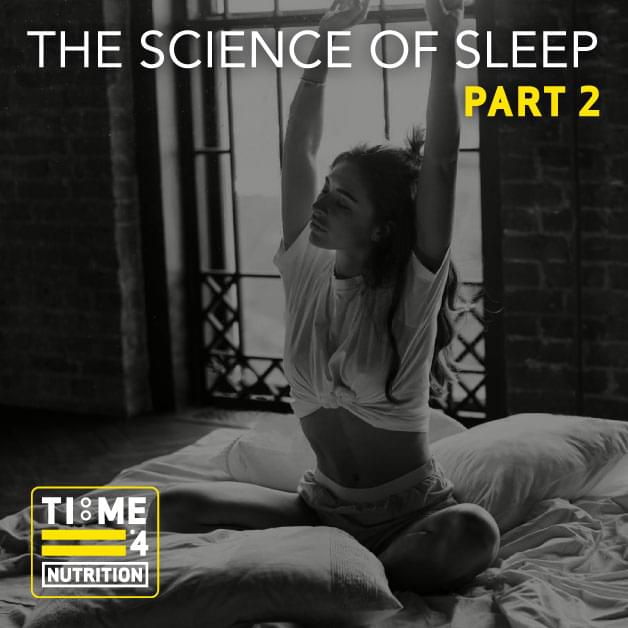The Science of Sleep: Part 2
The Science of Sleep: Part 2
The Science of Sleep
(Click on Nutritional Terms and Reference Numbers in Blue for More Info)
In part 2 of this series on Sleep, we are going to look at one man’s experience of poor Sleep and the steps that he took to address it.
Case study
My name is Paul Smith. I’m the founder and MD of Time 4 Nutrition. I‘d like to share with you my experience of poor Sleep and some of the approaches I have taken to improve it.
I work hard and live life to the full, and had always slept well. However, as I got older, I started to experience a few problems sleeping. Specifically, it was taking me longer to fall asleep, and if I woke up in the night, I found it difficult to get back to sleep, and most mornings, I didn’t feel properly rested.
I’m not sure if this is just a natural consequence of ageing, or is it because as we get older, we tend to have a lot more responsibility and stress, which makes it difficult to relax and switch off?
Due to my busy life, I have to sleep between certain hours. Typically, I go to bed around 10pm and get up early, usually 5.20am. If I don’t get a good night’s Sleep, I can’t lay in and to try to catch up. I have to wait until the following night and hope that I get better night’s Sleep. This, in itself, puts increased pressure on me, which makes it more difficult to relax and, consequently, to Sleep, which can become a vicious circle.
Knowing how important Sleep is, I wanted to explore as many different approaches as possible to find the most effective ways of improving it. I was already doing the obvious things, like not eating a big meal late in the evening and cutting out caffeine at least 4 hours before bed.
Owning Time 4 Nutrition means that I had access to a lot of different nutrients, herbs and ingredients that are used in traditional medicine to aid Sleep, which I could try. Also, I really like gadgets, so this was a great excuse to try as many as possible. However, I’m a critical and analytical person, so I wanted to know if there was any science to support their use.
So here are some of the other things that I have tried, and currently use, and what the science says about them.
What Does The Science Say: Melatonin Supplements
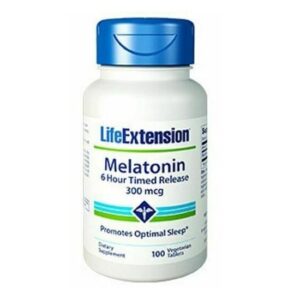
Melatonin is a hormone that regulates our Sleep–wake cycle. It is primarily released by the pineal gland in the brain. A supplement form is often used for the short-term treatment of Sleep disturbances, but is there any science to support this?
The scientific evidence regarding the use of melatonin to aid Sleep is somewhat equivocal. For example, a study by Leonardo-Mendonça et al., (13), which examined the benefits of four weeks of melatonin treatment on circadian patterns in resistance-trained athletes, found that it had a beneficial effect on the subject’s Sleep-wake cycle and improved Sleep efficiency (i.e. the ratio of the total time spent asleep in a night compared to the total amount of time spent in bed).
On the other hand, a review of the effectiveness of melatonin for promoting healthy Sleep by Costello and colleagues (12) concluded that the existing evidence for the use of melatonin for improving insomnia and for initiating Sleep and/or improving Sleep is weak.
Age may have an influence on the effectiveness of melatonin supplementation, as some authorities suggest that melatonin levels decrease with advancing age and the prevalence of Sleep disorders, particularly insomnia, increase. The findings of a study by Wade et al., (14), which examined the effectiveness of prolonged release melatonin on quality of Sleep and next-day alertness in insomnia patients aged 55-80 years, showed that a melatonin supplement resulted in significant and clinically meaningful improvements in Sleep quality, morning alertness, Sleep onset latency (i.e. the time taken to fall asleep) and quality of life in insomnia patients aged 55 years and over.
The Science of Sleep – My experience of Melatonin
I have recently been reading a lot about the various hormones that decline with age. Although testosterone is the most frequently discussed (this will be covered in another article), melatonin has also received considerable attention, so I thought I would give it a try. I had used it before for jet lag and found that it was effective but could leave me feeling a bit groggy in the morning. While the dosage for jet lag is typically 2mg-10mg, I use only 300mcg in a timed-release capsule. I find this helps me to have a more restful night’s Sleep with no noticeable downside.
Note: Melatonin is a prescription only medication in the UK.
What Does The Science Say: Blue Light Blocking Glasses
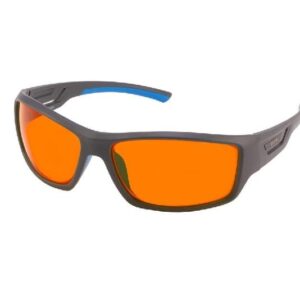
For More Information Click on the Link www.blublox.com
Blue/green light blocking glasses are specially designed glasses that effectively block all blue light and some green light from passing through the lens. While blue light from the sun is essential in regulating our Sleep and wake cycles and our body clock, exposure to blue and green light from digital devices, TVs and light bulbs, after dark can disrupt our sleep. Therefore, it is suggested that wearing blue light blocking glasses can help us to Sleep, but what does the science say?
Wahl et al., (9) state that chronic exposure to low-intensity blue light directly before bedtime, may have serious implications on Sleep quality, circadian phase and cycle duration’s.
So, do the blue light blocking glasses aid Sleep?
In a recent review of the effect of blue-light blocking spectacle lenses on visual performance, macular health and the Sleep-wake cycle (10), the authors stated that although one study reported a small improvement in sleep quality in people with self-reported insomnia after wearing high compared to low-blue light blocking lenses, they found a lack of high quality evidence to support using blue light blocking spectacle lenses for the general population to improve Sleep quality.
A study Esaki and colleagues (11), which compared the effects of wearing either blue light blocking (BB) glasses versus clear glasses (placebo) on individuals suffering from Sleep onset insomnia, found that the change scores for Sleep quality did not show a significant improvement in the BB group compared with the placebo group. However, the authors did note half of the BB group showed a clear improvement in Sleep quality.
They also noted that across both groups, 40% of the participants reported pain or discomfort from wearing the glasses, which were only available in one size. Consequently, the failure to find significant differences may have resulted from the glasses used in this study.
The Science of Sleep – My experience of Blue Light Blocking Glasses
I’ve read many articles about the negative effects of blue light on Sleep and how watching TV or looking at your phone close to bedtime can inhibit our ability to Sleep, both of which I do. Also, I have only LED lights at home, which are supposed to give off considerably more blue light than the old style incandescent bulbs.
So, it seemed a good idea to purchase some blue light blocking glasses by BLUblox. I only wear them for a couple of hours before going to Sleep and have found that they really do make a considerable difference. For example, I always watch TV in bed, as it helps me to relax and unwind, and since wearing the glasses, I find myself feeling tired and starting to fall asleep much more quickly, so that I now end up turning the TV off after only 20 mins.
The Science of Sleep – My Experience of a Sleep Mask
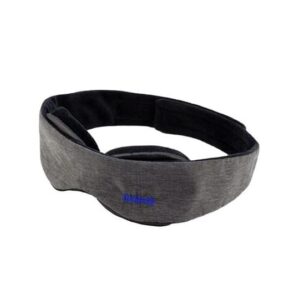
For More Information Click on the Link www.blublox.com
When I bought my blue light blocking glasses from BLUblox, they were running a promotion which entitled me to purchase their REMedy Sleep Mask at a discounted price. This is a very simple but very well made and comfortable eye mask, which blocks out all light. Like many people, I Sleep better in total darkness and this product definitely achieves that.
I would particularly recommend it to anyone whose bedroom is not very dark and whose Sleep is easily disturbed by light. I find it especially useful when staying in hotels, where there is often light shining through the curtains, under the door and from numerous other sources such as TVs, clock radios, etc. Although initially it feels a bit strange to be wearing a mask in bed, you soon get used to and it becomes a natural part of your bedtime routine.
What Does The Science Say: ChiliPad
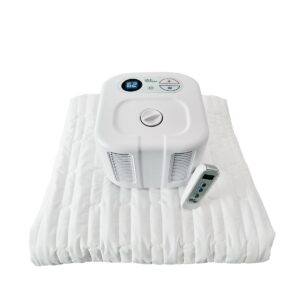
For More Information Click on the Link www.chilitechnology.com
The ChiliPad™ is a mattress pad with a cooling and heating temperature control system that ranges from 55°- 110° F (13°- 43° C). It regulates the surface temperature of a mattress by actively circulating water throughout the night using a network of micro tubes, which allows an individual to reduce their temperature.
It has been suggested that by lowering body temperature we can enhance Sleep, but is there any science to support this?
A recent paper by Harding and colleagues (5) showed that Sleep onset and a reduction in core temperature occur together. When our core and brain temperatures are in rapid decline, we are most likely to Sleep, and if we break from this cycle of body cooling, we experience insomnia. The authors further suggest that optimal ambient temperatures, in combination with bedding appear to be crucial for efficient Sleep onset.
The manufacturer of the ChiliPad conducted a pilot study (6), which compared the use of chili products vs. none use. The results showed are:
- Waking up with night sweats 25% less frequently
- 40% less likely to have trouble going back to Sleep if they woke up prior to their normal wake time
- 36% less likely to wake up due to discomfort or pain
- Waking up 11% less frequently due to worry or anxiety
- 15% less likely to wake up feeling tired and worn out
The Science of Sleep – My Experience of Chillipad
I find that I always Sleep better when the room is cooler, which can be difficult in the summer if it’s too windy to have the windows open or if your partner prefers the room to be warmer.
So, I purchased a Chillipad. It simply lays over the top of the mattress and has very small plastic tubes running through it, which are connected to a pump placed underneath the bed. This cools water and circulates it over the top of the mattress, which helps to drop your body temperature. The cooling effect provided by the Chilipad definitely helps me to Sleep better, particularly during the summer.
The pump does make a noise, which sounds like a fan, but it doesn’t interfere with my Sleep and I soon got used to it.
What Does The Science Say: White Noise Sleep App
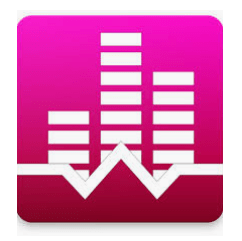
For More Information Click on the Link www.tmsoft.com
The white noise Sleep App can be downloaded to a mobile telephone or other device. It generates a variety of sounds over a wide range of frequencies, such as the sound of rain, waves washing up on to a beach, and pure white noise. It has been hypothesised that sounds such as these can aid relaxation and mask background noises that may interrupt Sleep, and so help an individual to fall asleep more easily and to stay asleep.
Is there any science to support the use of back ground noise to aid Sleep?
A study by Taranto-Montemurro et al., (18) found that there was approximately a 40% reduction in the time taken to fall asleep when subjects slept with a background of filtered white noise compared to normal environmental noise. Messineo and colleagues (19) achieved similar results (38% reduction in time taken to fall asleep) using broadband sound. The authors also noted that previous small pilot studies showed that the administration of constant white noise cannot only reduce the time taken to fall asleep, but also improve sleep quality.
The Science of Sleep – My experience with the White Noise Sleep App
What I like about this app is that it is easily download onto a smart phone and gives you the choice of a number of different sounds, like rolling waves or the wind, which help to drown out any background noise. You can merge different sounds together and it also has a timer so it can gradually lower the volume until its completely switched off.
I find that this works really well in hotels, where you can be exposed to unaccustomed noises that can make it difficult to Sleep or wake you up.
What Does The Science Say: HumanCharger®
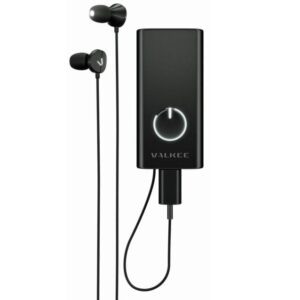
For More Information Click on the Link www.humancharger.com
The HumanCharger® is a bright light therapy device which stimulates the photosensitive receptors of the brain using a calibrated white light that passes through the ears.
It has been hypothesised that bright light shone directly into the ears can reach the light-sensitive regions of the brain, which can help to enhance energy levels, improve mood, increase mental alertness, reduce the effects of jet lag and aid Sleep, but what does the science say?
As strange as it may seem, shining bright light into the ears can affect brain functioning. A study by Ogawa et al (7) showed that light is capable of penetrating the human skull via the ear canals to reach the brain and affect its functioning, but can exposure to bright light aid Sleep? The simple answer to this question is yes. A study by Huang and colleagues (8) demonstrated that bright light exposure can be effective in improving Sleep problems in night shift-workers.
The Science of Sleep – My experience of the Human Charger
Initially, this gadget seems very strange because it looks like an ipod but what it actually does is shine very bright light into your ears to stimulate light receptors, which can help to enhance energy, mental alertness and mood.
I have also read that if you do not get enough bright light early in the day, this can then affect your ability Sleep. So I use the device first thing in the morning and found that it really does work, and it can also help with Jet Lag.
What Does The Science Say: Lumie light therapy products
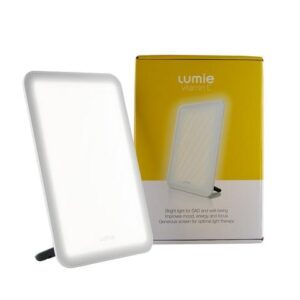
For More Information Click on the Link www.lumie.com
Lumie produce a range of light therapy products, such as the Bodyclock dawn simulator, an alarm that wakes an individual up with increasing levels of light. It is suggested that light therapy devices can provide a range of benefits including treating seasonal affective disorder (SAD), boosting mood and energy levels, and improving Sleep, but what does the science say?
It seems that there is a considerable body of research to support the use of light therapy. For example, the authors of a systemic review on the effects of light therapy on Sleep problems concluded that light therapy is effective for treating Sleep problems in general, particularly for circadian outcomes and insomnia symptoms (15). However, they did note most effect sizes are small to medium.
The Science of Sleep – My experience of the Lumie – Sad Lamp
I think most people would agree that they feel better in the summer months when they are exposed to more sunlight and daylight. Some people tend to be affected more than others and can suffer from seasonal affective disorder (SAD), which can result in a lack of energy, low mood and poor Sleep.
As I work in an office all day with little exposure to natural daylight, I use the lamp in the morning for an hour whilst sat at my desk and then sometimes again in the afternoon if I am feeling tired before I go to the gym. It definitely gives me a pick up and although it is very bright, it is very easy to use and small enough to sit on my desk.
What Does The Science Say: Oura Ring
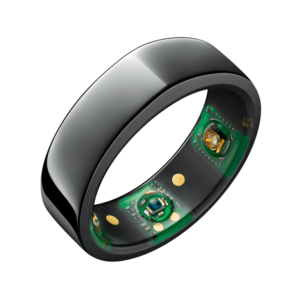
For More Information Click on the Link www.ouraring.com
The Oura Ring is a ring-sized advanced body-monitoring tool that works like a multi-purpose fitness tracker. It monitors various parameters including heart rate, temperature, steps, and Sleep, and provides personalised analysis and feedback. This includes specific data on both daytime movement and night-time body signals (i.e., time spent in each Sleep phase, resting heart rate, etc). It is not suggested that the Oura ring in itself will improve Sleep, but by allowing you to monitor your personal Sleep patterns it will enable you to learn how your lifestyle choices affect your Sleep, and how the quality of your Sleep affects your ability to perform. Consequently, you will be able to make the relevant changes to improve your Sleep and monitor their effectiveness.
Are such devices accurate?
A number of studies have shown that the Oura Ring and other similar devices can provide accurate data. For example, a study by de Zambotti and colleagues (16) evaluated the performance of a multisensor Sleep-tracker (ŌURA ring) against polysomnography (a laboratory based Sleep assessment using high tech equipment) in measuring Sleep and Sleep stages. The authors concluded that multisensor Sleep trackers, such as the ŌURA ring, have the potential for detecting outcomes beyond binary Sleep-wake using sources of information in addition to motion.
Similar results were achieved in a study by Roberts et al., (17), which showed that Sleep data from multisensor consumer wearables are strongly correlated with reference devices such as polysomnography.
The Science of Sleep – My experience of the Oura Ring
Fitness trackers like FitBit and Whoop are really popular now but I really like the Oura ring. Wearing a band or a watch is not always practical or comfortable, but I find that I really don’t notice wearing the ring. It is very discrete and just looks like a typical ring. Unlike most fitness trackers, it is more geared towards recovery and rest but gives you feedback on heartrate, heartrate variability, temperature, movement, Sleep and more. This is ideal for being able to get a baseline of how you Sleep so if you do make any changes you can then monitor their effect.
I link the ring up to my iphone and it gives me detailed analysis of various Sleep data including total Sleep, Sleep efficiency, restfulness, REM Sleep, deep Sleep, latency and timing. It will then give me a Sleep score out of 100 for that night. I have found it invaluable because all of the information is stored, which allows me to monitor it over a period of time to see what affects my Sleep and recovery.
So, there are the various things that I use to help me to Sleep. I can’t promise they’ll work for you, but as we have seen, there is science to support their use. Perhaps you have found other things help you to get a good night’s Sleep.
Conclusion
The attitude of “I’ll Sleep when I’m dead” is definitely not the right one if you want to feel and perform at your best. Although Sleep is often considered less important than other activities in the modern frenetic world in which we live, the science is very clear on the benefits of sufficient Sleep and the consequences of poor Sleep for both physical and mental health and performance.
If you suffer from poor Sleep, you may feel alone in the seemingly endless hours of a sleepless night, but approximately one third of the population will be sharing the same experience.
However, as we have seen in this article, there are many things you can do to improve your Sleep, ranging from simply ensuring that your bed is comfortable and avoiding the use of blue light producing devices before bedtime, to investing in various high-tech devices. Like many aspects of life, there probably isn’t a ‘one size fits all’ approach to sleeping well. We just have to find what works for us as individuals.
Note: If your sleeplessness persists, it is recommended that you consult a suitably qualified health care professional to ascertain the specific nature of the underlying problem and to help you to address it.
